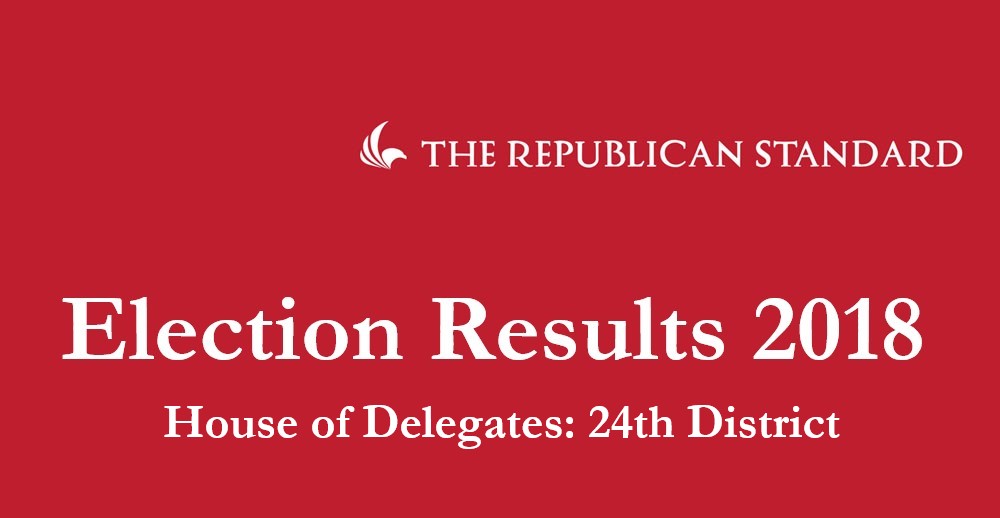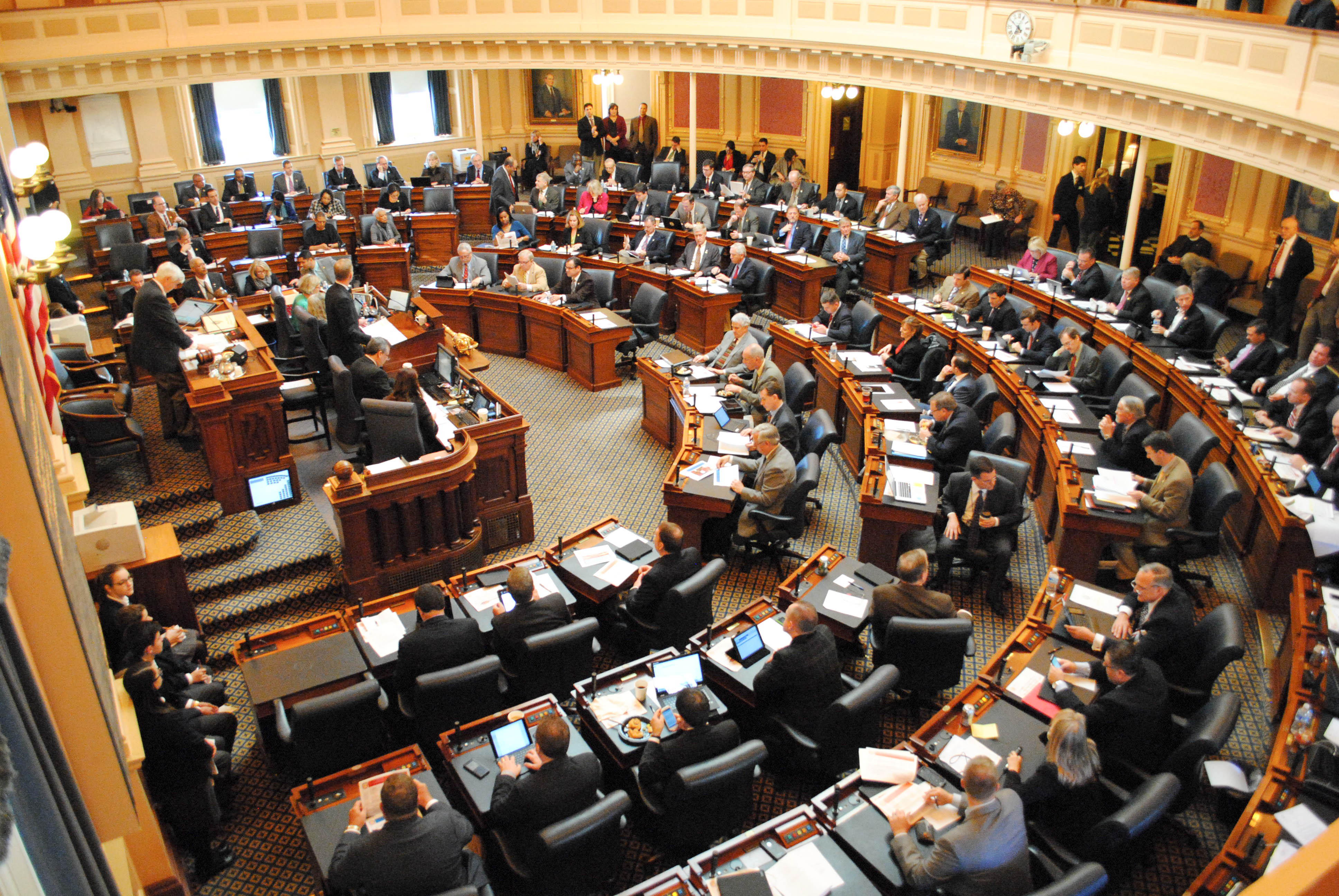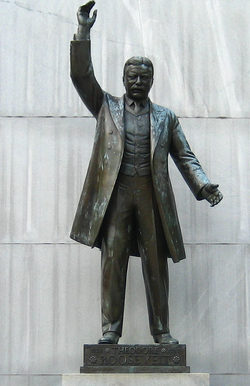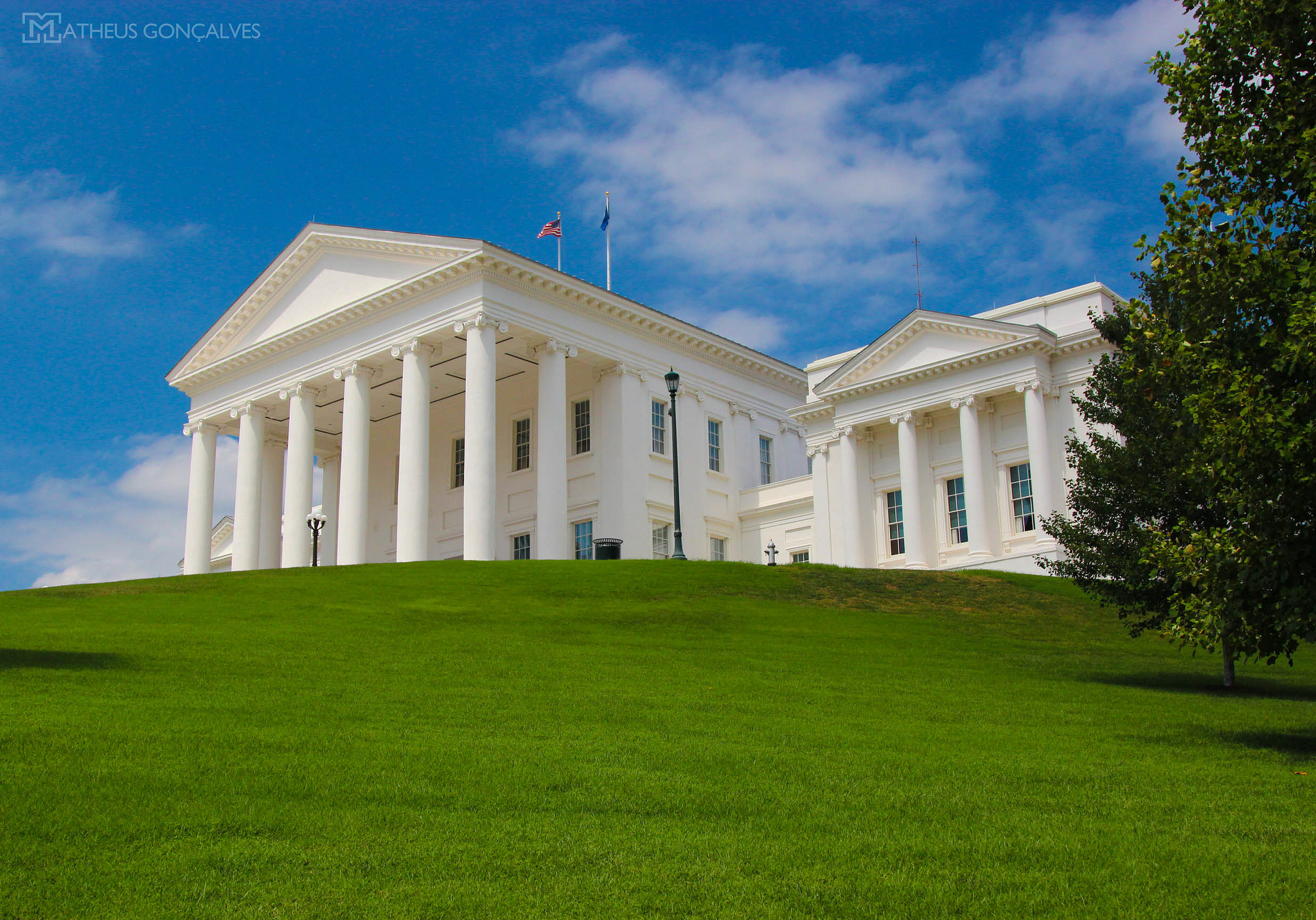The race has been called for Republican Rockbridge County Supervisor Ronnie Campbell to succeed Congressman-elect Ben Cline (VA-6) in the Virginia House of Delegates.

Virginia's Public Square
Virginia's Public Square

The race has been called for Republican Rockbridge County Supervisor Ronnie Campbell to succeed Congressman-elect Ben Cline (VA-6) in the Virginia House of Delegates.

The Department of Justice (DOJ) is now moving forward with a measure form the Trump Administration to officially ban bump stocks, which mimic the actions of automatically-firing weapons on semi-automatic firearms. The new law will take effect in late March, with people who currently own bump stocks required to either surrender them to the Bureau of Alcohol, Tobacco, Firearms, and Explosives (ATF) or destroy them.
White House Press Secretary Sarah Huckabee Sanders said during a press conference that March 21 is the deadline.
Bump stocks have been under national scrutiny and the source of many liberally-charged protests after the October 2017 Las Vegas massacre that left 58 dead and 851 injured. The lone gunman shot firearms modified with bump stocks from an open window in Mandalay Bay resort and casino down toward an adjacent country music concert, resulting in the deadliest mass shooting in modern U.S. history.
After the tragic event, manufacturers of firearms stopped production of bump stocks ahead of a possible action on the items from the U.S. government.
Previously, ATF officials concluded that bump stocks were only a gun “accessory” or “part,” which are not subject to federal regulation. Earlier this year, however, President Donald Trump said that he would work with White House officials to ban the devices, which drew much ire from Republicans that ran on fighting restrictions on lawfully-owned firearms.
Signed by acting-Attorney General Matthew Whitaker on Tuesday morning, the measure was almost immediately met by resistance from conservatives and gun ownership advocates. In a report from AP, Gun Owners of America stated that it would file a lawsuit against the DOJ and ATF in order to protect gun owners from the “unconstitutional regulations.”
“These regulations implicate Second Amendment rights, and courts should be highly suspect when an agency changes its ‘interpretation’ of a statute in order to impair the exercise of enumerated constitutional rights,” said the organization’s executive director, Erich Pratt.

While President Donald Trump demands billions for his border wall, money that could pay for it just went to Mexico and Central America marked for economic development aid.

This, of course, makes the Democratic-funded $4 million lawsuit even more interesting.

Interior Secretary Ryan Zinke will be leaving the Trump Administration at the end of the year after having the Cabinet-level position since March 1, 2017. President Donald Trump said a a new Interior Department chief will be named next week.
The former Montana congressman had expenditure controversies arise just months after he joined the White House over using private aircraft to perform political duties. Democrats, who have just re-taken the majority in the House of Representatives, are hinting at admonishing the secretary in an official hearing. Concerns with scrutiny and legal costs are said to be factors in Zinke’s decision.
Trump, who has reportedly been aware of situation for days, said on Twitter:
“Secretary of the Interior @RyanZinke will be leaving the Administration at the end of the year after having served for a period of almost two years. Ryan has accomplished much during his tenure and I want to thank him for his service to our Nation.”
Zinke helped define an agenda at the department of “energy dominance” and a de-regulatory attitude towards environmental regulations, leading the U.S. to surpass Saudi Arabia and Russia in oil production and becoming a net exporter. Although he is out, acting-Interior Secretary David Bernhardt is likely to continue the same route.
Bernhardt was briefly in charge of the Interior Department transition team for Trump after his 2016 presidential victory. Up until January 2017, he also served on the board of directors for the Virginia Board of Game and Inland Fisheries, resigning to work with the White House.
Known to take ethics seriously, Bernhardt also answered questions from the Senate Committee on Energy and Natural Resources during his hearing last year, stating that the would “be honest with the science” in the application of his position.
Zinke’s departure follows other Cabinet-level shake-ups after the midterm elections. On Friday, President Trump picked OMB Director Mick Mulvaney as “acting” White House senior aide as Chief of Staff John Kelly will be leaving the West Wing in just over two weeks. It was rumored that the four-star general and the President have not been on speaking terms.
Last week, Trump also appointed acting-Under Secretary of State for Public Diplomacy and Public Affairs Heather Nauert, a former Fox News host, to become the next U.N. Ambassador. Nikki Haley, a former South Carolina governor, added that she is not stepping down at the end of 2018 for a run at the presidency in 2020, saying that she wanted to “take a little time off.”
Nevertheless, Nauert’s meteoric rise from journalist to powerful U.S. diplomat in just 20 months with the federal government is likely to raise questions from Democrats at the eventual confirmation hearing.
The former Justice Department head under the late President George H. W. Bush, William Barr, was nominated for his old post after Jeff Sessions was ousted after a post-midterm election press conference. Barr is a Reagan-era policy staffer known as a strong defender of presidential power and aggressive actions on terrorism and drug-trafficking.
The move to confirm would end the animus from the media against acting-Attorney General Matt Whitaker, a staunch Trump ally, as anxiety over White House Special Counsel Robert Mueller‘s investigation into Russian collusion in the 2016 presidential election continues.
For a replacement at the Department of Interior, the President said a decision will be coming within a week. According to Bloomberg, potential contenders for the post include Republican Congresswoman Cathy McMorris Rodgers (WA-5); Utah Attorney General Sean Reyes (R); Nevada Attorney General Adam Laxalt (R); Idaho Governor C.L. “Butch” Otter (R); outgoing Nevada Senator Dean Heller (R); outgoing Wisconsin Governor Scott Walker (R), and former Wyoming Republican congresswoman Cynthia Lummis.

Low-fat chocolate milk is back in school cafeterias and pizza is still a vegetable after changes to Obama-era nutritional guidelines from the U.S. Department of Agriculture have been made by the Trump Administration. When the rules were implemented, then-First Lady Michelle Obama heavily backed the legislation, which placed strict limitations on school lunches to push healthier diets among children to lose weight amid increasing obesity levels nationwide.
However, when they went into effect, the only thing that was lost was billions of taxpayers dollars as schoolchildren across the country dumped their unappetizing government-mandated vegetables in the garbage.
For years, students, parents, and school teachers and staff have advocated for the rescinding of the restrictions established by 2010’s Healthy and Hunger-Free Kids Act. There were limits placed on total calories, portions, fat, sugar, sodium, and whole grain contents. Although the U.S. government created waivers on things such as events and food sales, it left cafeteria-goers disappointed and hungry.
Spokeswoman for the School Nutrition Association Diane Pratt-Heavner said in an interview with AP that since the implementation of the Obama-era restrictions, there have been regional disagreements with the provided courses.
“Finding whole-grain biscuits and grits that students like are a challenge in the U.S. South, while tortillas are a challenge in the Southwest,” she said, adding that nearly two million fewer kids are eating school lunch each day since the rules took effect.
Though, Agriculture Secretary Sonny Perdue said days ago that the White House is scrapping the unnecessary bureaucracy altogether by making many of the Trump Administration’s previous rule changes permanent, effectively erasing rules that some believe unfairly targeted food-based cultural diversity and wasted billions in federal funding.
In all, 99,000 schools across the country will be affected by the change.
Of course, proponents of the Obama-inspired law and many on the left argue that the Trump Administration is putting the lives of millions of children in jeopardy, adding that the overhaul steers away from decades of having a national interest in health and physical fitness.
Even though the U.S. is in its 57th year of presidential fitness campaigns, Americans, for lack of a better word, are fatter than ever before.
 This week, the United Health Foundation announced in its “America’s Health Rankings Annual Report” that obesity in the U.S. is at an all-time high. The obesity rate exceeds 30 percent of the adult population, up five percent in the past year (from 29.9 percent to 31.3 percent), AP reported.
This week, the United Health Foundation announced in its “America’s Health Rankings Annual Report” that obesity in the U.S. is at an all-time high. The obesity rate exceeds 30 percent of the adult population, up five percent in the past year (from 29.9 percent to 31.3 percent), AP reported.
Regardless of the statistics, does it really matter if people are fat – at least to the U.S. government?
The first recorded policy-based instance of this in the U.S. was in the post-WWII era.
In 1956, President Dwight D. Eisenhower created the President’s Council of Youth Fitness, the precursor to the current President’s Council on Fitness, Sports, and Nutrition, which commissions a national study to measure fitness testing in schools.
The 1953 report on which the original policy is based was conducted by the Austro-Hungarian Dr. Hans Kraus, who is interestingly the pioneer of modern rock climbing, as well as one of the founders of sports medicine and physical rehabilitation. Analysis found that the state of American fitness was in shambles, scoring very low on the international stage. “The report claimed that 56% of American children failed the fitness test, but only 8% of Europeans did,” Vox reported on the instance.
President Eisenhower, the former five-star general of the United States Army and Supreme Allied Commander, presumably, was not happy.
Although Eisenhower may have introduced a vast number of Americans to having a great physical fitness as being in the national interest, it was actually President John F. Kennedy that led on the issue to make it integral to his campaign and during his time in the Oval Office.
Commenting on the history of physical fitness being a part of the well-being of society since the days of the ancient Greeks and it being “as old as Western civilization itself,” Kennedy wrote in a 1960 Sports Illustrated article entitled “The Soft American,” that citizens were in danger of losing the tradition of realizing its full potential as a people.
Part of his bigger push against the Soviet Union during the early height of the Cold War, President Kennedy said the U.S. was battling “a powerful and implacable adversary determined to show the world that only the Communist system possesses the vigor and determination necessary to satisfy awakening aspirations for progress and the elimination of poverty and want.” He added that only a “physically fit” American public could have the determination and will to challenge such enemy.
In the later 1960s, with more and more young Americans passing fitness tests, President Lyndon B. Johnson conducted a second national fitness survey, creating the first Presidential Fitness Award that is now given to students who score above the 85th percentile on the President’s Challenge. Continued through the Nixon Administration, alterations to the program included goals to promote daily exercise, strength training, and having a more Teddy Roosevelt-esque approach to a “strenuous life.”
It wasn’t until President Ronald Reagan was inaugurated in 1981 that any major changes were made. By executive order, he created the National Fitness Foundation, a National Fitness Testing Week, and the U.S. Fitness Academy. When his vice president and successor President George H. W. Bush looked to make a change at the Council on Physical Fitness and Sports, he appointed Hollywood actor and Mr. Olympia Arnold Schwarzenegger as chairman to promote the need for personal wellness and healthy physique throughout the U.S.
Afterwards, despite his frequent trips for sausage biscuits, President Bill Clinton and his administration took the system online in the late 1990s. In 2003, for the 50th anniversary of the Eisenhower fitness proclamation, under President George W. Bush the council launched a national fitness test for adults.
 Beginning with the Obama Administration, a more aggressive approach with the program was taken. With what started as the “Let’s Move!” program, the name of the council was changed to become the President’s Council on Fitness, Sports, and Nutrition. First Lady Obama was even the principal administration member working on fitness and nutritional initiatives.
Beginning with the Obama Administration, a more aggressive approach with the program was taken. With what started as the “Let’s Move!” program, the name of the council was changed to become the President’s Council on Fitness, Sports, and Nutrition. First Lady Obama was even the principal administration member working on fitness and nutritional initiatives.
The program was dedicated to solving the problem of childhood obesity in the U.S., which led to the federal school lunch program overhaul for the first time in 15 years to include healthier and more nutritious meals.
President Obama also pushed through legislation requiring restaurants with more than 20 or more chains to post their calorie counts on menus.
However, in the decades since a renewed national interest in health and physical fitness, Americans have gained weight.
Of course, the government cannot actually force anyone to get up and do jumping jacks or eat mung beans and quinoa. The council even admits to this, saying they only “promote programs and initiatives,” and “promote healthy and active lifestyles.”
So, again, does it really matter to the U.S. government if people are fat?
One can argue the economics, the healthcare consequences, federal Medicaid and Medicare spending, and any other statistics on the merits – it makes sense. Someone who eats kale all day will probably be better off than one who eats hash browns and scrapple – that is pretty obvious.
But, at least schoolchildren can eat all the pizza they want and be healthy. In all seriousness, the whole “pizza is a vegetable thing” is a bit of a misnomer. In 2011, the House Democratic Committee said, “House Republicans are ramming through legislation…to classify pizza as a ‘vegetable’ for the purpose of school lunches.”
The law does not specify pizza. That year’s Farm Bill included language that dictated one-eighth of a cup of tomato paste could suffice as a one-half serving of vegetables. In fact, despite a pinch of salt, it is actually healthier and more nutritious than one-half of a cup of apple slices served in school cafeterias.
Nevertheless, should it matter if all Americans want is cheeseburger pizza?
Maybe it’s a mark of being comfortable. After all, when Eisenhower was in office, the U.S. came off a few years service in the total war of the 1940s. As a general, presumably he would want Americans to prepare for a seemingly eventual terrible circumstance after a period of global geopolitical hegemony.
Maybe it’s a mark of the people not wanting the government meddling in their lives to figure out how much salt was on their fries. It could be that Americans just like chili dogs more than kale, and the fact that kids do not like vegetables – they never will. As the Libertarian-esque “Parks and Recreation” character Ron Swanson would say, “fish is a vegetable,” as well.
Although the government cannot and should not force people to consume certain things like organic tofu and free-range squash, it does lead to dire consequences like an obese populous or a lack of a woodsman attitude – all in the name of freedom, right?
Though, Americans could learn a lesson from a president that put his mark of what being physically fit was and how a frontiersman was made on the newly discovered plains of the near-western U.S.
In 1910, one year after leaving office, President Theodore Roosevelt delivered a speech called “Citizenship in a Republic” which, among some, would come to be known as the widely-quoted “The Man in the Arena.”
In Sorbonne in Paris, Roosevelt spoke of becoming a nation of people striving to be the best and “daring greatly.”
 “It is not the critic who counts; not the man who points out how the strong man stumbles, or where the doer of deeds could have done them better. The credit belongs to the man who is actually in the arena, whose face is marred by dust and sweat and blood; who strives valiantly; who errs, who comes short again and again, because there is no effort without error and shortcoming; but who does actually strive to do the deeds; who knows great enthusiasms, the great devotions; who spends himself in a worthy cause; who at the best knows in the end the triumph of high achievement, and who at the worst, if he fails, at least fails while daring greatly, so that his place shall never be with those cold and timid souls who neither know victory nor defeat.”
“It is not the critic who counts; not the man who points out how the strong man stumbles, or where the doer of deeds could have done them better. The credit belongs to the man who is actually in the arena, whose face is marred by dust and sweat and blood; who strives valiantly; who errs, who comes short again and again, because there is no effort without error and shortcoming; but who does actually strive to do the deeds; who knows great enthusiasms, the great devotions; who spends himself in a worthy cause; who at the best knows in the end the triumph of high achievement, and who at the worst, if he fails, at least fails while daring greatly, so that his place shall never be with those cold and timid souls who neither know victory nor defeat.”
Although the government cannot force the American public to be physically fit and healthy, to be able to handle a strenuous life, and promote a can-do attitude, it doesn’t mean Americans don’t need to.

“It makes no sense to implement a remedial map given that the Supreme Court may uphold the legislatively-enacted map in its entirety or even just in part,” says Speaker of the House of Delegates Kirk Cox.

Pre-filed bills coming in just weeks before the 2019 General Assembly session begins on January 9 on Bank Street in Richmond.

Roadway safety decreases significantly as drivers deviate from the prevailing speed, and speed limits are increased to help decrease unsafe speed variations among the fastest and slowest drivers.

Google CEO Sundar Pichai is getting grilled during a congressional hearing today in front of the House Judiciary Committee on a wide range of issues, including potential political biases on its platforms, privacy practices which have comes under vast criticism, and its plans to create a censored search application for China’s authoritarian regime. Bringing an end to a tumultuous year for big tech and social media companies like Facebook, Pichai’s testimony on the Hill comes as Google refused to send a company representative to appear before Congress weeks ago after probes into foreign election meddling earlier this year, which sparked anger among lawmakers who believe the world’s largest Internet service provider was trying to dodge federal scrutiny.
Tuesday’s hearing is titled “Transparency and Accountability: Examining Google and its Data Collection, Use, and Filtering Practices,” specifically focusing on the company’s alleged political bias and information filtering. Republicans have accused Google and other tech platforms of suppressing conservative voices.
Silicon Valley’s effects on democratic processes, privacy, and misinformation have received questioning, insofar “healthier civic dialogue” is concerned per the committee’s chairman, Republican Congressman Bob Goodlatte (VA-6). He asked if there were substantial disparities between the way in which Google has handled the campaigns of political candidates and rates that were charged for advertising.
Pichai said his company places great importance on being non-partisan, denying accusations of political bias that have dominated the industry at-large.
“We take privacy seriously,” he added.
Nevertheless, besides a near-countless amount of allegations that Google has “indexed” conservative content “lower” than more liberal messaging, concrete proof has yet to be unearthed as the inner workings of how the platform’s search results are extraordinarily complicated and opaque.
Republican Congressman Lamar Smith (TX-21) said to Pichai that there is “irrefutable” evidence of political bias, claiming that Google’s search results led to “2.6 million votes” being “swung” towards Democratic presidential candidate Hillary Clinton in the 2016 General Election. Furthermore, the Texas lawmaker said that “96 percent of references to President Trump [indexed on Google] are from liberal media.”
Pichai, however, in response to questions of third-party results of Internet searches, said that Google has been transparent in its processes, denying calls that the company’s engineers have “manipulate[d]” the process.”
With more than 90 percent of the market share throughout the world, calls for antitrust lawsuits have come forth, with the Trump Administration looking to investigate not only Google, but other tech companies like Amazon. In 2017, following the implementation of strict Internet guidelines under the European Union’s General Data Protection Regulation (GDPR), the political and economic union of 28 member states hit Google with a $2.7 billion antitrust fine for its results.
One other topic that is to come up is Google’s plan to launch a censored search engine in China, which would block search results for queries that the Chinese government deemed “sensitive,” like “human rights” and “student protest” and link users’ searches to their personal phone numbers. The measure is set to bolster the Communist Party‘s extreme “social credit system” that ranks people within the country and punishes them for breaking with President Xi Jinping’s regime. Human rights groups and lawmakers alike have criticized Google for potentially violating user privacy and aligning with China’s oppressive government.